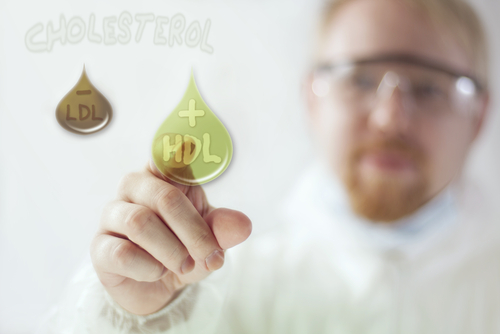Pulmonary Hypertension Treatment Could Be Derived From “Good Cholesterol” Protein
Written by |

 UCLA researchers have shown that oxidized lipids may contribute to pulmonary hypertension (PH), a progressive and incurable disease that is responsible for narrowing the small blood vessels in the lungs.
UCLA researchers have shown that oxidized lipids may contribute to pulmonary hypertension (PH), a progressive and incurable disease that is responsible for narrowing the small blood vessels in the lungs.
In a study entitled “Apolipoprotein A-I Mimetic Peptide 4F Rescues Pulmonary Hypertension by Inducing MicroRNA-193-3p” and published in the Circulation journal, the team used two PH rodent models to understand the role of oxidized lipids in the progression of pulmonary arterial hypertension (PAH), since these are known to play a crucial role in inflaming blood vessels and hardening arteries, causing diseases such as atherosclerosis.
[adrotate group=”4″]
The researchers observed that apoA-1, a key protein of HDL cholesterol, was able to reduce the production of oxidized lipids in PH, improving the rodent’s heart and lung function.
“Our research helps unravel the mechanisms involved in the development of pulmonary hypertension. A key peptide related to HDL cholesterol that can help reduce these oxidized lipids may provide a new target for treatment development.” Dr. Mansoureh Eghbali, the study’s senior author and an associate professor of anesthesiology at David Geffen School of Medicine at UCLA said in a University press release.
Additionally, the team used a small peptide, 4F, that mimics the action of apoA-1, observing that it decreased the levels of oxidized lipids and rescued preexisting PH in both rodent models. This peptide specifically restored expression of microRNA-193, a micro ribonucleic acid that targets the action of certain enzymes involved in the production of oxidized lipids, such as lipoxygenases.
“The increased amounts of these oxidized lipids due to pulmonary hypertension keeps the expression of this molecule (microRNA-193) under check, which aggravates symptoms of the disease,” first author Dr. Salil Sharma, a UCLA postdoctoral researcher in anesthesiology added in the press release.
[adrotate group=”3″]
Moreover, the team found that the slow proliferation of smooth muscle cells in the lungs of PH patients was a result of low levels of microRNA-193 in the blood and lung tissue of these patients. By overexpressing microRNA-193 in cells isolated from their lungs, the researchers were able to rescue preexisting PH and downregulate lipoxygenases and insulin-like growth factor-1 (IGF-1) receptor, a tyrosine kinase that plays an important role in growth and anabolic effects.
The potential of this HDL-related peptide and microRNA-193 in human disease will be the focus of future research, since understanding how levels of oxidized lipids in the blood correlate with disease severity in people with PAH can prove of immense therapeutic value.



